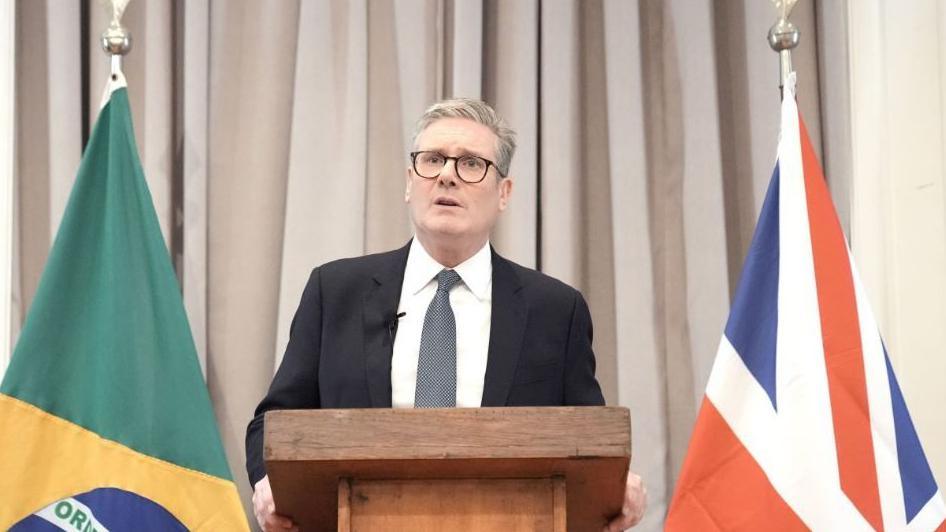Russia's nuclear rhetoric won't dent UK support for Ukraine - PM

- Published
Sir Keir Starmer has promised Russia's "irresponsible rhetoric" on nuclear weapons will not affect UK support for Ukraine.
Ukraine has fired US-supplied longer-range missiles at Russian territory for the first time, the Russian government said, a day after the US gave its permission for such attacks.
Earlier on Tuesday, President Putin approved changes to Russia's nuclear doctrine, setting out new conditions under which the country would consider using its arsenal, treating strikes from non-nuclear states, backed by a nuclear state, like the US, as a joint attack on Russia.
Speaking at the G20 summit, Sir Keir said the UK would "ensure Ukraine has what is needed for as long as needed".
Ukraine fires US-supplied longer-range missiles into Russia, Moscow says
- Published19 November 2024
Putin approves changes to Russia's nuclear doctrine
- Published19 November 2024
Fury in Russia at 'serious escalation' of missile move
- Published18 November 2024
The UK has supplied Ukraine with its Storm Shadow missiles, although ministers have not been drawn on details about their use, and £7.5 million funding for new attack and surveillance drones has also been announced.
At a press conference to close the G20 summit of the world's largest economies in Brazil, the PM said: "There is irresponsible rhetoric coming from Russia and that's not going to deter our support for Ukraine."
There had already been "1,000 days of sacrifice", Sir Keir said, but the UK would continue to ensure Ukraine has what it needs to fight the war "for as long as it needs".
"On day 1,000 of Russia's illegal war in Ukraine, I say again - end the war. Get out of Ukraine," he said.
"In this moment when global challenges are affecting us at home, I take the view that British leadership matters."
Sir Keir noted that Putin had been absent from the G20 for the third year running, adding he was “the author of his own exile”.
Asked about the summit's joint communique regarding support for Ukraine - which Downing Street earlier described as "disappointing" - the PM stressed that the G20 group was united over Ukraine's sovereignty.
He said: "The communique is absolutely clear on the UN charter and sovereignty and territorial integrity, and obviously that's negotiated by quite a sort of diverse group."